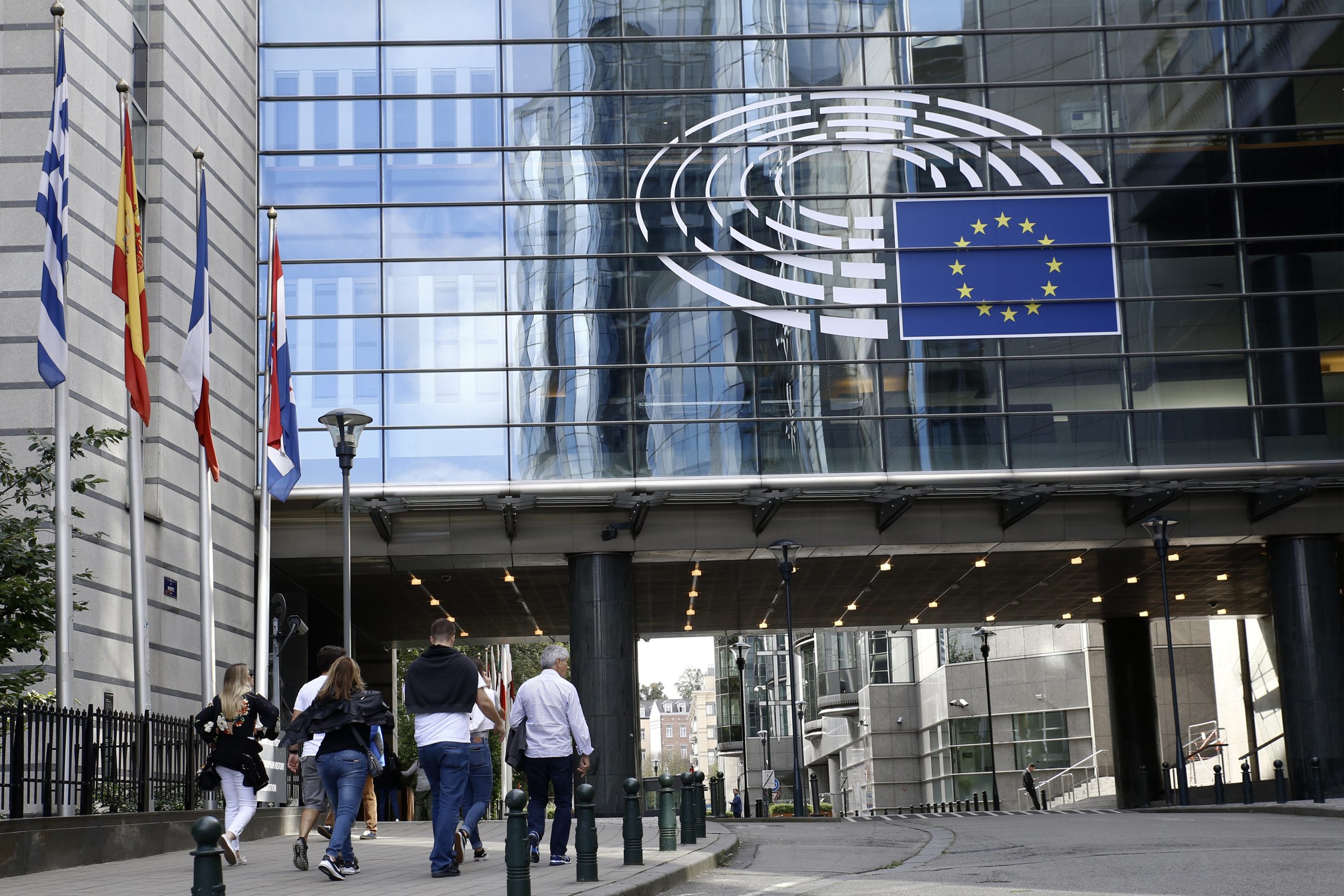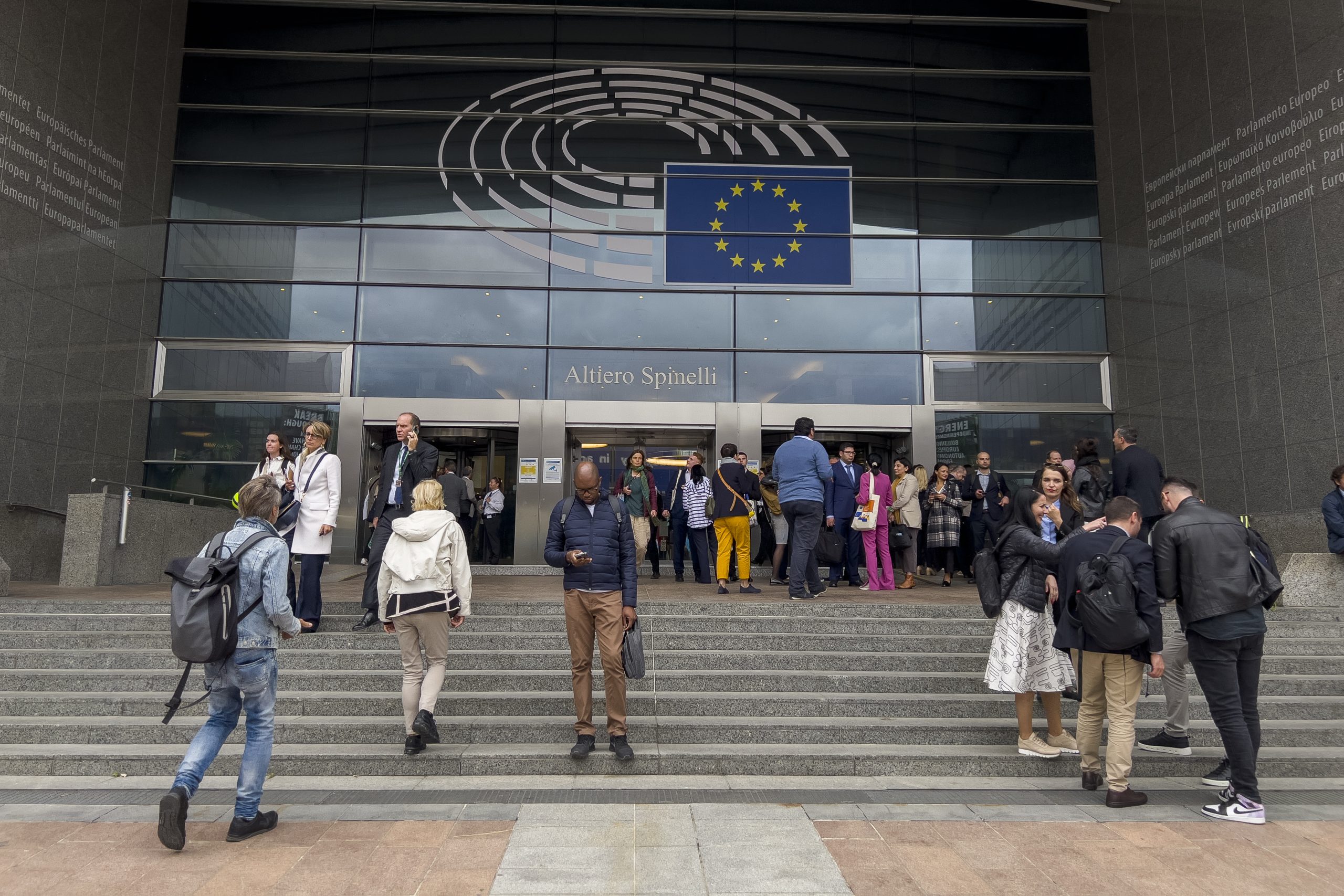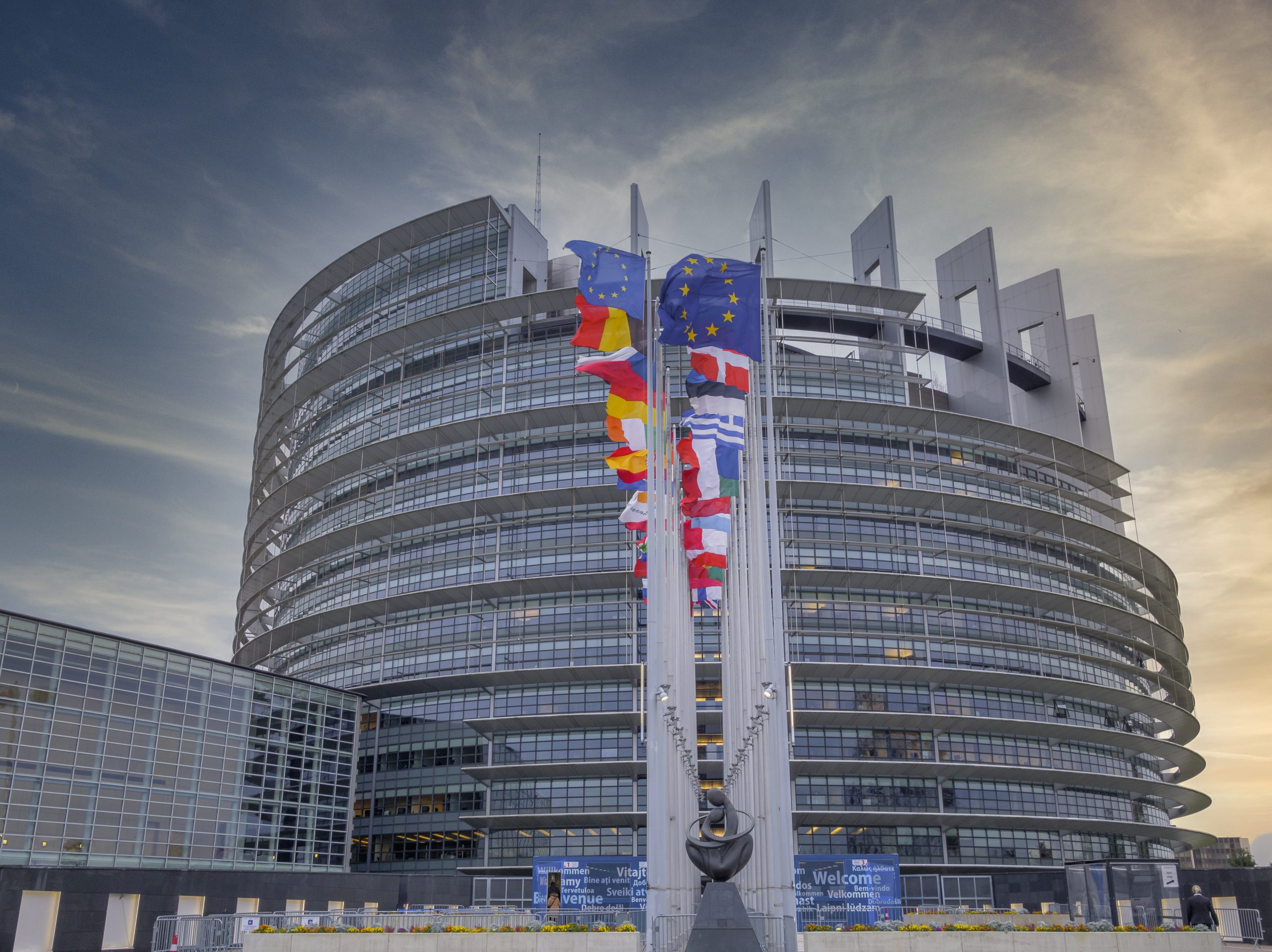The Proposal of the European Parliament for the Amendment of the Treaties: a Document Influenced by Lobbyists?
In previous posts published on Constitutional Discourse, we have analyzed the proposal of the European Parliament for the amendment of the founding Treaties (Treaties) of the EU, adopted by its plenary in November 2023. The European Parliament has recommended a series of amendments to the Treaties, most of them giving more powers to the European Parliament and weakening the role of the Council and the European Council in the EU’s architecture.
The proposal, however, did have some influences from previous documents and not only from the final report on the Conference on the Future of Europe. There are some ideas that seem similar to the (not ratified) draft treaty establishing a constitution for Europe (like renaming the titles of certain officials to expressions used in Member States), others seem to be part of resurfacing ideas from previous EP resolutions and reports (like the idea of the spitzenkandidat process or the proposal of the right of initiative).
The so-called Spinelli Group, an informal group (not an organ of the European Parliament, an “outside-organization”) of like-minded MEPs in the European Parliament has published their own “manifesto” before the adoption of the proposal of the European Parliament. There were other federalists-oriented organizations, like the Federal Alliance of European Federalists, who had published a draft for a European constitution establishing a federal Europe.
The following analysis will try to map the similarities between these proposals. The selection of rapporteurs and the negotiations of reports in the European Parliament are not public. The fact that outside organizations could have such a strong influence on European policies could highlight a lack of transparency in this field. Did the text incorporate proposals of outside organizations functioning with the goal to influence European politics, in other words, lobbyists according to the interinstitutional agreement on the European transparency register? It is unclear how much the draft of the report was influenced such entities, but similarities and connections regarding the content of the text and the drafters could provide the public with some clues.
A forum of like-minded MEPs or an alliance for political success?
The Spinelli Group was established as a network of federalist-minded MEPs in 2010, with the goal to influence the decision making of the European Parliament to adopt federalist policies. Trying to influence European politics is in fact one of the differentia specifica of lobbyist organizations. One of the founders was a rapporteur for the report Proposals of the European Parliament for the amendment of the Treaties. Even though the Rules of Procedure does not allow for such practice, the report had (in the beginning six) five rapporteurs (instead of one rapporteur and five shadow rapporteurs, dodging the political deadlock of every political group trying to nominate their own members for rapporteur). The rapporteur of ECR has decided to leave the negotiating table in August 2023. The five rapporteurs left were Guy Verhofstadt, Sven Simon, Gabriele Bischoff, Daniel Freund and Helmut Scholz. Four of the rapporteurs were German and all five of them are members of the board of the Spinelli Group. This means that among the rapporteurs there were no MEPs after the withdrawal of ECR from the negotiations who were not part of the Spinelli Group. This raises some questions regarding the transparency of the process of negotiating the draft of the report.
The European Parliament has a problem of lack of transparency regarding such meetings and the meetings of coordinators to begin with. The most significant decisions are taken during coordinators’ meetings behind closed doors and with no information to the public whatsoever. Coordinators decide about the title and topic of the reports, about the rapporteurs (which group will receive the possibility to propose the rapporteur) and about the agenda, timing of debates and votes of a specific file. The negotiations of rapporteurs with shadow rapporteurs (or in this case, of rapporteurs with rapporteurs) are also not public, even the time and date of the meetings is unknown, but for the short list of participants of the meeting.
Therefore, due to the lack of transparency and the procedure foreseen by the Rules of Procedure, it is possible that the Spinelli Group might have had a great influence on the content of the report.
The proposal of the European Parliament vs. a federal manifesto
The document published by the Spinelli Group in August 2023 is titled Proposal of a manifesto for a federal Europe: sovereign, social and ecological. It is a document of political nature, with a credo, quotes from (former) politicians and proposals on institutional reforms and policies of the EU. It begins its introduction with the statement “federalism is based on the critique of the dogma of the absolute sovereignty of nation-states”. It argues that the “intergovernmental, veto-based, non-federal nature” of international organizations proves to be an important obstacle in the successful workings of international organizations to provide a system of fair, effective and democratic global governance. The document analyses the history of Europe and declares as a solution to current problems that “federalism advocates democracy without borders”. It analyses problems in each policy field, mostly in ones, where the European Parliament has requested more competences for the EU in its proposals (health, environment, migration, rule of law, etc.). It declares that the solution is to “expand the range of policies that are managed supranationally”.
The manifesto proposes a federal Europe, where the European Parliament has the legislative initiative. The EP would receive equal rights in the field of taxation, own resources, debt, ending unanimous decision making in these fields in the council. The Proposal of the European Parliament proposes the same in the field of taxation and fiscal policy. The European Parliament with be able to (with co-decision) issue debt and pan-European taxes.
There is a separate chapter in the manifesto for institutional setting. It states that the EU would become stronger with a European federal constitution, “to give rise to a more perfect political union”. One of the first amendments it the text considers is abolishing unanimity decision-making in the Article 7 procedure as well. The text argues for generally introducing qualified majority voting, thus ending unanimous decision making in the EUCO and Council not only in foreign policy and other fields as well, much like the proposal of the European Parliament.
The institutional setup of the EU would be fundamentally altered. The Council would become the second chamber in a bicameral system. The European Parliament would receive stronger powers through the right of initiative and a greater political control over the Commission through the introduction of individual no-confidence votes for Commissioners. The European Parliament would have strong inquiry powers. The proposal of the transnational lists and Union-wide constituency, along with the lead candidate system would be adopted, along with strengthening European political parties.
All of these institutional proposals were part of the proposal of the European Parliament as well, with the same content.
A different federalist proposal
The Federal Alliance for European Federalists has adopted its own proposal for a Comprehensive Federal Constitution for Europe (FAEF). FAEF is an association uniting European federalist movements. In its proposal for a federal constitution for Europe, there is no mentioning of the transnational lists, Union-wide constituency (although citizens elect the House of Citizens in one constituency), qualified majority, right of initiative, etc. It uses a completely different glossary and drafts its own idea for a European institutional system.
The legislative branch is the European Congress, consisting of the House of Citizens and the House of the States. The former is composed of delegates of the citizens of the federation, elected for a term of five years. The House of the States is composed of nine delegates per state, appointed for five years by their state’s parliament among its members. The House of States holds the power to preside over impeachments. Both Houses have the power to initiate laws.
The executive branch is formed by the Federal Government and consists of a president, vice presidents and the cabinet of ministers. The president and the vice presidents would be directly elected for a term of four years. The judicial power would be vested in the Federal Supreme Court of Justice and lower courts.
This proposal seems more closed to the current functioning of the United States or other federal states. However, there is not much similarity between this text and the proposal of the European Parliament.
Was the Spinelli Group lobbying in the European Parliament?
The proposal of FAEF uses a completely different logic, glossary and institutional setup as the one described in the proposal of the Spinelli Group. However, the latter has the exact same institutional proposals as the report of the European Parliament for the proposals of the amendment of the Treaties. Considering that all rapporteurs were part of the Spinelli Group during the drafting and adoption procedures of the report of the European Parliament, there is a high chance that the Spinelli Group did in fact have a strong influence on the text. This – along with some controversial ideas incorporated in the draft and the lack of transparency – could also be the reason for the lack of the support of a great majority in Parliament, as the report in question has passed with only a slim majority (291 for, 274 against and 44 abstentions).
The draft report was presented in the AFCO meeting of September 2023 and was already voted in the plenary meeting almost two months later. The rapporteurs did not have much time to consider ideas coming from MEPs not part of the Spinelli Group. In case of such fundamental changes more substantial debates are needed.
The question currently is, will the Council consider to forward the proposal of the European Parliament, if its content is controversial and it has been adopted by a slim majority?
Árpád Lapu is a policy adviser on constitutional issues at the European Parliament since 2019 and a PhD student of the Károli Gáspár University of the Reformed Church in Hungary. Between 2017-2019, he worked as an adviser at the Cabinet of the Minister of Justice of Hungary, conducting comparative constitutional analyses. He has earned his JD at the Pázmány Péter Catholic University in Hungary, has a BA in international relations from the University of Szeged and an MA in European and international administration from Andrássy Gyula German Speaking University in Budapest. He has completed an Edx MicroMaster in cooperation with the Catholic University of Louvain (UCLouvain) in international law. His field of research is non-participation in armed conflicts in international law and constitutional norms regarding non-participation in armed conflicts. He has written publications regarding the future of the EU ETS system of the European Union, institutional reform proposals of the Union, and research in the field of social sciences.








